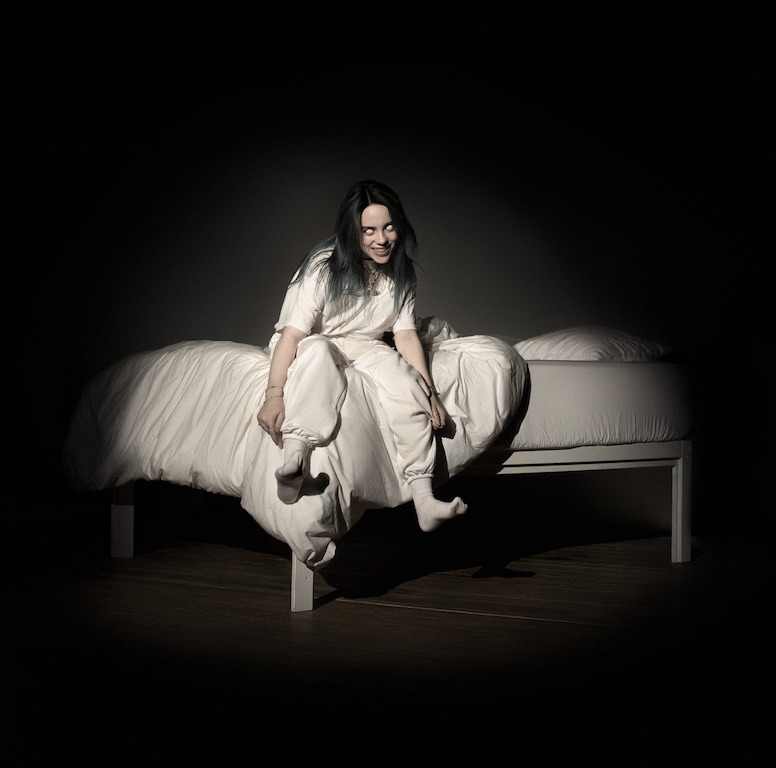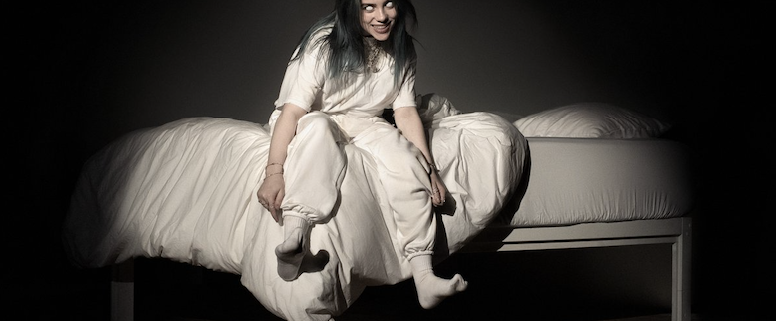REVIEW: Billie Eilish taps into dark side in debut album


After much anticipation, 17-year-old pop prodigy Billie Eilish released her debut studio album “When We All Fall Asleep, Where Do We Go?” Friday. Mixing electronic production with her signature somber lyrics, Eilish creates a pop-noir album that distinguishes her from her contemporaries.
The album lends a peek into the mind of one of the music industry’s most highly acclaimed Gen Z artists. She speaks openly about her struggles with mental health and her songs are rife with refreshing references to sadness and love. On this album, she lures listeners deep inside her world, through its existing dark shadows, and then wraps the audience with her sorrowful lyrics.
On “My Strange Addiction,” Eilish interpolates clips from “The Office,” a show she has publicly professed her love for on a number of occasions. The song’s upbeat sultriness is contrasted by the voices of sitcom characters as she sings about an emotional tie she can’t seem to break.
“My Strange Addiction” evokes imagery of pill-popping and painful withdrawal symptoms, but Eilish has condemned her own personal drug use numerous times, most recently in a March 29 article from The Guardian.
“I have never done drugs, I’ve never got high, I’ve never smoked anything in my life,” Eilish told The Guardian. “I don’t give a fuck, I never have.”
Eilish further explores her nightmarish brand of electropop in “Bury a Friend,” the album’s spookiest song as well of one of its hit singles, released Jan. 30. The song is so dark that it becomes easy to forget that Eilish, who recorded her dreamy hit single “Ocean Eyes” at only 14, is not even old enough to vote.
Another standout on the album is “I Love You.” The soft ballad features her brother and frequent collaborator Finneas, and speaks of the complicated feelings between two lovers who are struggling to maintain the relationship.
“And nothing has to change today,” Eillish sings softly. “You didn’t mean to say ‘I love you.’”
The ballad stands out against the rest of the album’s electronic productions and softly leads into the final track, “Goodbye,” the first line of which begs “Please, please / don’t leave me.”
With the release of her LP, Eilish has cemented herself as the new darling of anti-pop. Despite her defiance against mainstream sounds, the teenage artist has found unprecedented success by taking unconventional yet authentic approaches to her craft.
Eilish is in full control of her work, from writing her own songs to being her own creative director — a rare feat that has allowed her to catapult into the cultural zeitgeist with nearly three years worth of streaming hits and collaborations.
Deeply personal, edgy and slightly ghoulish, “When We Fall Asleep, Where Do We Go?” not only showcases Eilish’s hauntingly contagious energy, but also stands as a testament to her uncanny ability to defy genre barriers.
While Eilish didn’t need an album to solidify her stardom, this debut does exactly that. If there was any doubt about Eilish’s ability to continue redefining the music industry, “When We All Fall Asleep, Where Do We Go?” reminds us that Eilish’s journey is only just the beginning.

